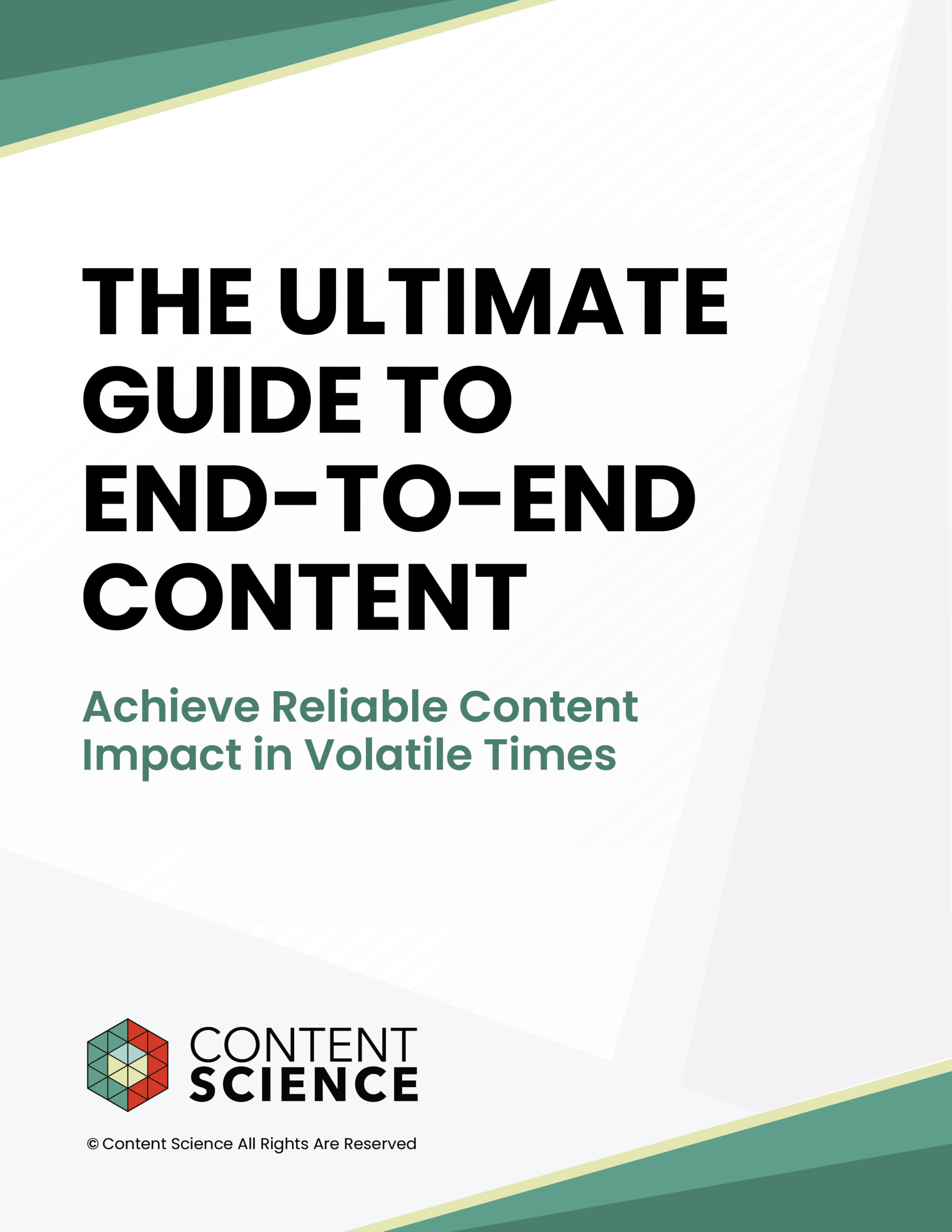
Credibility and trust are critical for organizations seeking results from their web content. Credibility has the power to change people’s attitudes and spur action, whether it’s convincing them to adopt a positive view of an organization, change their point of view on an issue, sign up for a newsletter, or make a purchase.
Earning trust and maintaining credibility is harder than ever as Americans are spending more time online and getting content from more sources.
Do consumers consider online content trustworthy and reliable? It depends on who you ask. There are some bright spots as well as challenges ahead. Take a look at these research results.
Trends in Web Use and Content
Most Americans are going online now, and many are doing so constantly. There’s a lot of trust in brands and their internet ads, but only specific segments of the population trust content from the media.
Americans spend a lot of time online. Eight in 10 Americans go online every day, including 28% who go online almost constantly, 45% who say they’re online several times a day, and 9% who go online roughly once a day. — Pew Research Center
Fake news concerns are at an all-time high. 61% of global participants worry about foreign attacks on our media to inflame differences, the most significant increase in societal fears in 2024 (up 6%). — Edelman 2024 Trust Barometer
65-66% of Americans at least sometimes get new from news websites, apps, or search engines, and 54% of Americans at from social media. 91% of those aged 18-29 primarily access news through digital devices. — Pew Research
Gen Z and Millennials consume news from a wide range of sources. That mix includes traditional national and local news outlets such as newspapers, TV news stations, their websites, or apps. It also includes a wide range of social media platforms. Indeed, on average, those surveyed consume news from about six different traditional sources or social media platforms at least weekly. — American Press Institute
42.3% of Baby Boomers consumed broadcast news at the beginning of COVID, with 21% consuming through online tv/streaming. This rate dropped to 36.7% by December of 2020, with 30% saying they would continue to watch broadcast tv. — The Manual
Consumers find television advertising is somewhat or very trustworthy. Consumers have the lowest rates of trust in social media advertising. — Statista
Google is set to introduce a groundbreaking Ads Transparency Policy that aims to provide users with detailed information about advertisers and their campaigns. This information includes the name, location, and the ads served by advertisers across various Google platforms, such as Google Search and YouTube. It’s important to note that this transparency initiative extends to all advertisers, including those who have not yet undergone the advertiser verification program. — Newfound Marketing
Americans’ trust in the media remains sharply polarized along partisan lines, with 70% of Democrats, 14% of Republicans and 27% of independents saying they have a great deal or fair amount of confidence. — Gallup
The impact of epidemic exposure is substantial: someone who is highly exposed to an epidemic throughout his or her impressionable years, compared with someone with no such exposure, is 5.1 percentage points less likely to have confidence in the government, 7.2 percentage points less likely to have confidence in the honesty of elections, and 6.2 percentage points less likely to approve of the performance of the national leader. — International Monetary Fund
The average journalist receives over 5 pitches per day but writes fewer than 5 stories a week, only a quarter of which come from pitches. — Muck Rack
Web Content Challenges
In general, people are struggling with whether web content is reliable, and even say they’re worried or confused about digital content and fake news. But, consumers aren’t the only ones harmed by the infiltration of questionable content—brands could also take a hit to their reputations.
Overall, web content has a trust problem. Sixty-five percent of study participants say web content is “hit or miss” or “unreliable.” — Content Science, Content + Credibility Report
Trust in business declines. In the 2023 Edelman Trust Barometer, participant trust in businesses declined in 15 out of 27 countries, rose in 8 countries, and stayed the same in 4 countries. — 2023 Edelman Trust Barometer
One of the biggest challenges facing influencer marketing is fraud. Some influencers use bots to inflate their followers and engagement, which can deceive brands into paying for fake influence. According to a few studies, 51% of Instagram influencers were found to have bought followers or engagement. — Avalan.io
Older generations have a newfound reliance on the internet and more confidence using the technology. Across the age ranges in our report, roughly one in five people, including 18% of people over the age of 65, felt more confident using the internet, because they had to rely on it during lockdowns. Only 7% of respondents reported finding it hard. — Avast
One third of adults over 65 still have never used the internet, and half don’t even have internet access at home. In San Francisco, “the epicenter of tech,” 40% of older adults do not have basic digital literacy skills. — Forbes
Modern Rise of Mis/Disinformation
The modern rise of mis/disinformation creates opportunities and pitfalls for developing credibility with 21st-century audiences. Becoming an established voice of truth in your industry bolsters brand perception and makes attracting audiences easier. However, spreading misinformation, even accidentally, creates a PR nightmare that is difficult for your brand to recover from.
Content Science created misinformation roundups covering topics like the recent infodemic spurred by Covid and misinformation-spreading AI-driven misinformation. These roundups provide a summary of the most salient developments surrounding the state of misinformation and how it impacts businesses’ ability to develop trust and credibility with consumers.
“Misinformation is a top 10 threat to growth.” — PwC 24th Annual Global CEO Survey
Rising use of digital platforms and a growing volume of AI-generated content are making divisive misinformation and disinformation more ubiquitous. — World Economic Forum Global Risks Report 2025
Political extremism is certainly quite visible still, and it might get worse before it gets better. That trend contributes to conspiracy theories, which fuel misinformation.— Colleen Jones
Fake news decreases people’s trust in the mainstream media. While both social media and traditional news use are positively associated with exposure to actual fake news stories, only social media news use is positively associated with perceived fake news exposure. — Oxford Academic
Estimated costs related to digital advertising fraud worldwide grew exponentially between 2018 and 2023, from 35 billion to 100 billion U.S. dollars. It’s believed that the digital fraud costs in the United States reached 81 billion dollars in 2022. With the growing digitization of processes, including those in advertising, comes a growing risk of fraud. — Statista
CEOs are obligated to defend facts. In 25 countries, 72% of participants believe CEOs are obligated to defend facts and expose questionable science used to justify bad social policy. — Edelman 2023 Trust Barometer
The platform (Twitter) has disbanded its trust and safety teams; revoked bans on extremist and dangerous accounts; removed labels informing users that accounts were associated with foreign governments (including Russian and Chinese propaganda outlets); censored journalists critical of Musk; and allowed for what users report, anecdotally, to be a sharp increase in hate speech, online trolling, and harassment. All this marks the decline of Twitter as a trusted platform for news and information. — Foreign Policy
In this age of the Fourth Industrial Revolution (aka the ‘Digital Age’), companies, individuals, and governments across the world have been facing down the monster of misinformation. Armed with new technology, research-based law, and vocal experts, the world has started to adapt and adjust to AI and misinformation; in both good ways and bad ways. — Content Science
Looking Forward + Solutions
Private and nonprofit organizations, as well as the government, are closely examining online content creation and stepping in to ensure that it’s trustworthy. They’re enacting laws and using emerging technology to protect consumers.
Advertisers should be held accountable. In 25 countries, 71% of participants believe CEOs are obligated to pull advertising money from platforms that spread misinformation. — 2023 Edelman Trust Barometer
The government is stepping in. The Federal Trade Commission is reviewing influencer and branded content, focusing on the role of large companies rather than individual influencers. In recent years, the FTC has charged companies like Lord & Taylor and Sunday Riley with deceiving the public. — Federal Trade Commission
Taking action on junk fees. All Competition Council federal agencies are looking for ways to reduce or lower junk fees. While in some cases more work is needed to identify and understand unjustified practices, federal agencies are acting now in places where there is a compelling case to reduce or eliminate fees – and taking comment and engaging stakeholders where greater transparency and data will help to improve regulatory approaches going forward. — whitehouse.gov
“We must finally hold social media companies accountable for the experiment they are running on our children for profit. And it’s time to pass bipartisan legislation to stop Big Tech from collecting personal data on kids and teenagers online, ban targeted advertising to children, and impose stricter limits on the personal data these companies collect on all of us. — President Joe Biden
Fact-checking groups are working to protect the truth. Organizations such as FactCheck.org, Poynter Institute, Pew Research Center, and CDC Foundation are fighting disinformation online and advancing digital literacy. — Media Bias/Fact Check
Companies are turning to technology to help detect truth in content. One example is Reuters News Tracer, which uses machine learning algorithms to find breaking news on Twitter and assign it newsworthiness and confidence scores about the likely truthfulness of events. — Reuters
Facebook parent Meta announced a new AI-powered tool on Monday, called Sphere. It’s intended to help detect and address misinformation, or “fake news”, on the Internet. Meta claims that it’s “the first (AI) model capable of automatically scanning hundreds of thousands of citations at once to check whether they truly support the corresponding claims.” — CNBC
“84% of marketers prioritize first-party data, including customer insight data and transactional data. 61% still report using third-party data despite the decline in the usefulness of this source. 41% of CMOs report data exposure as the top concern for implementing AI.” — Salesforce
Build trust through consistency and inclusion to solidify credibility, think consistent, not formal—even for crucial topics. This is particularly important for high-stakes topics such as health and finance. Having a consistent content voice is one way to strengthen trust. Another aspect of building trust is using inclusive language. Today, more and more users expect inclusive language and will be turned off if you don’t use it. — Content Science
Bottom Line
As online content continues to proliferate, and more people worldwide go online, credibility and trust will remain a challenge. What does this mean for content producers? According to the Content Science Content and Credibility Study, in terms of web content, “people face an experience not unlike looking for treasure in an ever-growing trash heap.” “If you want your organization to stand out from the heap, you must make your content more credible.”
To learn more about modern strategies for building trust and credibility with consumers, and what drives those strategies, watch Content Science’s 2023 State of Content Webinar.
Events, Resources, + More
The Ultimate Guide to End-to-End Content
Discover why + how an end-to-end approach is critical in the age of AI with this comprehensive white paper.
The Content Advantage Book
The much-anticipated third edition of the highly rated book by Colleen Jones is available at book retailers worldwide. Learn more!
20 Signs of a Content Problem in a High-Stakes Initiative
Use this white paper to diagnose the problem so you can achieve the right solution faster.
Upskill with Content Science Academy
Training for modern content roles through on-demand certifications + courses or live workshops.






Comments
We invite you to share your perspective in a constructive way. To comment, please sign in or register. Our moderating team will review all comments and may edit them for clarity. Our team also may delete comments that are off-topic or disrespectful. All postings become the property of
Content Science Review.